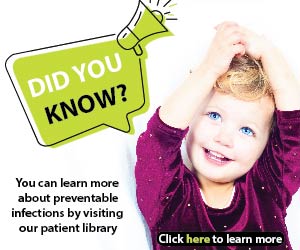Plan the best staycation this summer

The summer of 2020 will go down as one of the strangest ones in history yet. Instead of bathing suit tan lines, the lower half of our faces sport pale mask-shaped shadows. Pool parties and BBQs have evolved into socially distant clusters of couples eating kebab off plastic plates and drinking mango cocktails out of red Solo cups.
These aren’t the summers we may remember from our past, but if we’ll all still be home over the next few months, here’s what you need to know to make this year’s staycation an overall success.
The great outdoors!... and all its creatures
A nice way to get away without going away might be to rent a cabin up north or visit local parks and walk paths. Being outside comes with so many benefits: a much-needed dose of Vitamin D (but always pack sunscreen!), a literal breath of fresh air, a flood of green scenery on our senses… It’s important to think preventatively, too: you might want to add insect repellant to your bag and dress in long-sleeved shirts with pants to reduce the chance of mosquito and tick bites.
And then…. There’s the stuff you may not have though of: rusty bannisters and neglected parc equipment, startled wildlife that opted for “bite” instead of “flight…” These are very real hazards which, if left unattended, could leave happy vacationers woefully at risk.
Tetanus: how do you get it and what are the symptoms?
The bacteria that causes tetanus – a very serious disease - can get into your system by ways of broken skin1; scrapes, scratches and puncture wounds. So, injuries caused by rusty objects or heavily soiled equipment, puncture wounds or snags caused by rogue needles and nails need to get checked out ASAP.
The most common symptom of tetanus is a tightening of the muscles in the face and around the neck – which is why it’s also occasionally referred to as lockjaw. Avoid the risk altogether: the best way to prevent tetanus is through early immunization.
Rabies: how do you get it and what are the symptoms?
People are most at risk of rabies when they’ve been bitten or scratched by an infected animal2. If an event such as this were to occur, the person should clean the wound immediately with soap and water and make arrangements to see a doctor as soon as possible. The doctor will then determine whether treatment or vaccination is necessary. Again, rabies is another preventable disease through vaccination.
Symptoms include pain and tingling near the infection site, which could progressively lead to fever, headache, and even death within seven to 14 days of the infection.
When possible, remember to stay home!
Social distancing remains as important as ever in our collective goal of reducing the spread of COVID-19. When you do venture outside the confines of home, though, remember to wash your hands frequently with soap and warm water, carry antibacterial hand gel with you wherever you go, don’t touch your face, and wear a mask when being two meters away from other people isn’t possible.
Find your closest vaccinating clinic today!
Do your part by staying home this summer! It may not come with the thrill of getting a stamped passport, but it’s still an important step to recharging your batteries. Enter your postal code on our homepage to locate the vaccinating clinics near you! It’s not worth the risk; getting immunized is easy. Be sure to speak to your doctor to see if you should get vaccinated and how often your immunizations need to be renewed.
Brought to you by Vaccines411.ca – know where to go for your vaccinations.
This information should not be used as a substitute for the medical care and advice of your doctor. There may be variations in treatment that your physician may recommend based on individual facts and circumstances.
Read more Vaccines411® Articles 
Sources
Note: the hyperlinks that direct to other sites are not continuously updated. It is possible that some links become untraceable over time. Thank you.
- Tetanus
https://www.canada.ca/en/public-health/services/immunization/vaccine-preventable-diseases/tetanus.html - What you need to know about rabies in Canada
https://www.cbc.ca/news/health/rabies-what-you-need-to-know-1.5213739



